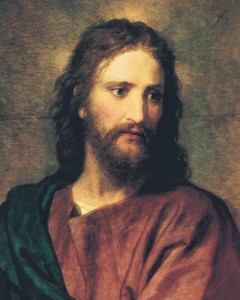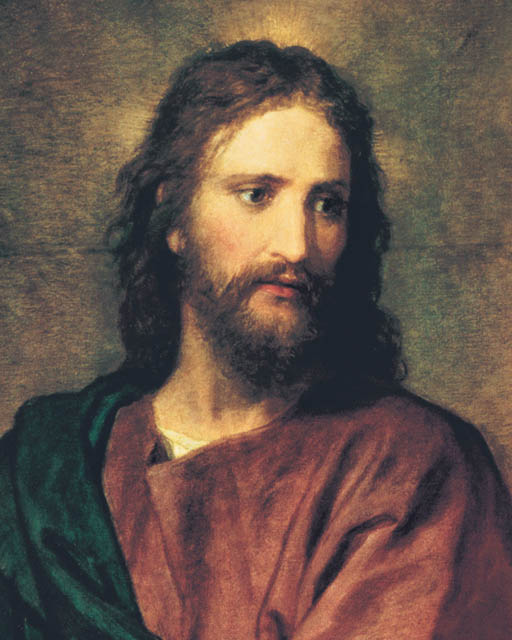When I was in my twelfth year, my parents joined the Latter-day Saints. On the fifth of November I was baptized. The following May we started for Utah. We left our home May 19, 1856. We came to London the first day, the next day came to Liverpool and went on board the ship Horizon that eve.
 It was a sailing vessel, and there were nearly nine hundred souls on board. We sailed on the 25th. The pilot ship came and tugged us out into the open sea.
It was a sailing vessel, and there were nearly nine hundred souls on board. We sailed on the 25th. The pilot ship came and tugged us out into the open sea.
I well remember how we watched old England fade from sight. We sang “Farewell Our Native Land, Farewell.”
When we were a few days out, a large shark followed the vessel. One of the Saints died, and he was buried at sea. We never saw the shark any more.
When we were sailing through the banks of Newfoundland, we were in a dense fog for several days. The sailors were kept busy night and day, ringing bells and blowing foghorns. One day I was on deck with my father when I saw a mountain of ice in the sea close to the ship. I said, “Look, Father, look.” He went as white as a ghost and said, “Oh, my girl.” At that moment the fog parted, the sun shone brightly till the ship was out of danger, when the fog closed on us again.
We were on the sea six weeks, then we landed at Boston. We took the train for Iowa City, where we had to get an outfit for the plains. It was the end of July. On the first of August we started to travel, with our ox teams unbroken and we not knowing a thing about driving oxen.
When we were in the Iowa campground, there came up a thunderstorm that blew down our shelter, made with handcarts and some quilts. We sat there in the rain, thunderstorm and lightning. My sister Fanny got wet and died the 19th of July 1856. She would have been 2 years old on the 23rd. The day we started our journey, we visited her grave. We felt very sad to leave our little sister there.
We traveled through the States until we came to Council Bluffs, Iowa. Then we started on our journey of one thousand miles over the plains. It was about the first of September. We traveled fifteen to twenty-five miles a day. We used to stop one day in the week to wash. On Sunday we would hold our meetings and rest. Every morning and night we were called to prayers by the bugle.
The Indians were on the war path and very hostile. Our captain, John Hunt, had us make a dark camp. That was to stop and get our supper, then travel a few miles, and not light any fires but camp and go to bed. The men had to travel all day and guard every other night.
We traveled on till we got to the Platte River. That was the last walk I ever had with my mother. We caught up with handcart companies that day. We watched them cross the river. There were great lumps of ice floating down the river. It was bitter cold. The next morning there were fourteen dead in camp through the cold. We went back to camp and went to prayers. They sang, “Come, Come, Ye Saints, No Toil Nor Labor Fear.” I wondered what made my mother cry. That night my mother took sick, and the next morning my little sister was born. It was the 23rd of September. We named her Edith, and she lived six weeks and died for want of nourishment.
We had been without fresh water for several days, just drinking snow water. The captain said there was a spring of fresh water just a few miles away. It was snowing hard, but my mother begged me to go and get her a drink. Another lady went with me. We were about halfway to the spring when we found an old man who had fallen in the snow. He was so stiff we could not lift him, so the lady told me where to go, and I would go back for help, for we knew he would soon be frozen if we left him. When I had gone, I began to think of the Indians and began looking in all directions. I became confused and forgot the way I should go. I waded around in the snow up to my knees and became lost. Later when I did not return to camp, the men started out after me. It was 11:00 o’clock [stet] before they found me. My feet and legs were frozen. They carried me to camp and rubbed me with snow. They put my feet in a bucket of water. The pain was terrible. The frost came out of my legs and feet but not out of my toes.
We traveled in the snow from the last crossing of the Platte River. We had orders not to pass the handcart companies. We had to keep close to them so as to help them if we could. We began to get short of food; our cattle gave out. We could only travel a few miles a day. When we started out of camp in the morning, the brethren would shovel snow to make a track for our cattle. They were weak for the want of food as the buffaloes were in large herds by the roads and ate all the grass.
When we arrived at Devil’s Gate, it was bitter cold. We left lots of our things there. There were two or three log houses there. We left our wagon and joined teams with a man named James Barman. We stayed there two or three days. While there an ox fell on the ice and the brethren killed it, and the beef was given out to the camp. My brother James ate a hearty supper and was as well as he ever was when he went to bed. In the morning he was dead.
My feet were frozen, also my brother Edwin and my sister Caroline had their feet frozen. It was nothing but snow. We could not drive out the cold in our tents. Father would clean a place for our tents and put snow around to keep it down. We were short of flour, but Father was a good shot. They called him the hunter of the camp. So that helped us out. We could not get enough flour for bread as we got only a quarter of a pound per head a day, so we would make it like thin gruel. We called it “skilly.”
There were four companies on the plains. We did not know what would become of us. One night a man came to our camp and told us there would be plenty of flour in the morning, for Brother Young had sent men and teams to help us. There was rejoicing that night. We sang songs, some danced, and some cried.
We traveled faster now that we had horse teams. My mother had never got well; she lingered until the 11th of December, the day we arrived in Salt Lake City, 1856. She died between the Little and Big Mountains. She was buried in the Salt Lake City Cemetery. She was forty-three years old. She and her baby lost their lives gathering to Zion in such a late season of the year. My sister was buried at the last crossing of the Sweetwater River.
We arrived in Salt Lake City at nine o’clock at night the 11th of December 1856. Three out of the four that were living were frozen. My mother was dead in the wagon.
Bishop Hardy had us taken to a house in his ward and the brethren and the sisters brought us plenty of food. We had to be careful and not eat too much as it might kill us we were so hungry.
Early next morning Brother Brigham Young and a doctor came. The doctor’s name was Williams. When Brigham Young came in, he shook hands with all of us. When he saw our condition—our feet frozen and our mother dead—tears rolled down his cheeks.
The doctor wanted to cut my feet off at the ankle, but President young said, “No, just cut off the toes, and I promise you that you will never have to take them off any farther.” The doctor amputated my toes, using a saw and a butcher knife. The sisters were dressing mother for her grave. Oh how did we stand it? That afternoon she was buried.
We had been in Salt Lake a week, when one afternoon a knock came at the door. It was Uncle John Wood. When he met Father he said, “I know it all, Bill.” Both of them cried. I was glad to see my father cry.
Instead of my feet getting better, they got worse until the following July. I went to Dr. Wiseman’s. But it was no use—he could do no more for me unless I would consent to have them cut off at the ankle. I told him what Brigham Young had promised me. He said, “All right, sit there and rot. I will do nothing more until you come to your senses.”
One day, I sat there crying, my feet were hurting so, when a little old woman knocked at the door. She said she had felt that someone needed her there. I told her the promise that Brigham Young had made me. She made a poultice and put it on my feet, and every day she would come and change the poultice. At the end of three months my feet were well.
One day Dr. Wiseman said, “Well, Mary, I must say you have grit. I suppose your feet have rotted to the knees by this time.” I said, “Oh, no, my feet are well.” He said, “I know better, it could never be.” So I took off my stockings and showed him my feet. He said that was surely a miracle.
Account taken from I Walked to Zion by Susan Arrington Madsen. 1994. p91–95.
Twitter •


 Watch a video about the restoration of the gospel on lds.org
Watch a video about the restoration of the gospel on lds.org